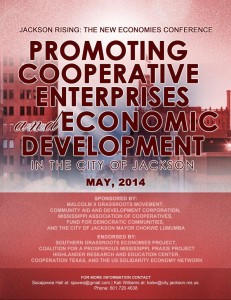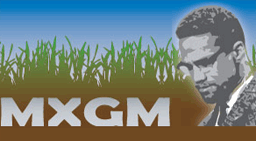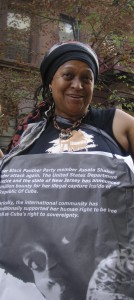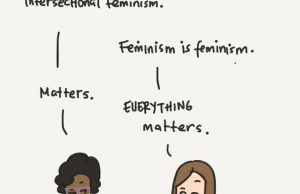K.O.S. (Determination): Black Communities Keeping It Real and Right
By Liz Derias
 “…among those that have least, beat hearts of hope, fly sparks of overcoming.” ~ Mumia Abu Jamal, Death Blossoms: Reflections from a Prisoner of Conscience
“…among those that have least, beat hearts of hope, fly sparks of overcoming.” ~ Mumia Abu Jamal, Death Blossoms: Reflections from a Prisoner of Conscience
Like many other cities across the US in the 1980’s muddling through the residue of Carter’s liberalism and the immorality of Reganomics, Philadelphia, PA was a hotbed of violence and crime, was riddled with the emergence of crack cocaine, faced ravishing poverty, and was burdened with the dismantling of social, health, and economic services for its majority Black working class and poor residents. My family emigrated to this country amidst this context in 1982, and settled in Philly in 1984. One year later on May 13, 1985, a Pennsylvania State Police helicopter ordered by then mayor Wilson Goode and the Philadelphia city government, dropped two bombs (supplied by the FBI) on the Africa, or the MOVE, family, who resided at 6221 Osage Avenue in West Philadelphia. The Africa family was a collective of African descended people living in the city, dedicated to Black Liberation. The explosion and ensuing fire burned down more than 60 row homes, and killed 11 people, including MOVE leader John Africa. Hypocritically enough, Goode called for an investigation of the bombing. In addition to two grand jury hearings that found the bombing illegal, and the Philadelphia MOVE Special Investigative Commission that issued a report in 1986 which stated, “Dropping a bomb on an occupied row house was unconscionable”, no one in the Philadelphia city government has ever been criminally charged.
I was too young to recall the bombing, but at the age of 12 after learning about MOVE and Mumia Abu Jamal from elders who recalled the “before” and “after” Philadelphia, I realized that the City has never been the same. During the late 1980’s into the early 1990’s, the MOVE bombing incited demonstrations and resistance and a fightback that whenever I recall my home city, I feel most viscerally proud to have witnessed. Hip Hop, through groups like Public Enemy, served as a weapon organizing the voices that inspired the collective fightback during the late 1990’s into the 2000’s. For instance, in 2002 Public Enemy was banned from MTV for not removing audio recording and visual images of Mumia Abu Jamal in their video, ‘Give the People What they Want’.
Many years after the bombing, when I was in college, I worked with an organization in North Philadelphia named Reconstruction, Inc. Reconstruction, Inc. seeks to, “…build communities where people are proud to live in by reestablishing a sense of shared community life through collective work, individual responsibility, and mutual respect.” Reconstruction founders used the maintenance and rehabilitation of neighborhood homes as a strategy for youth leadership and community development. Youth learned architecture and carpentry skills, while developing self-discipline and loving relationships amongst each other, and with adults. Reconstruction’s work rested on the belief that the process of self-determination was a bedrock to building a healthy and functional community. One of Reconstruction’s founders, a comrade to the Africa family, took me and my colleagues to Osage Ave., and to the new home of the Africa family. I had never been to Osage Ave till then. I recall a solemn community that still bore the scars from 1985. To this day, the Osage homes are not in tact; practical issues resound, such as irreparable foundations, plumbing and sewage problems, and most astounding, residents who are weary of people coming onto the block who they don’t recognize. Seeing Osage Ave. put the work of Reconstruction, Inc. into perspective for me, and deepened my analysis of the necessity to build (literally and figuratively) self determined communities.
The Africa family has since relocated from Osage Ave, but continue to live in Philadelphia. They remain rooted in principles such as family, interdependence, unity, and love. Sisters Pam and Ramona Africa advocate across the world for the release of their family members who were incarcerated prior to the bombing, and for the release of Mumia Abu Jamal, a Black Panther Party member and journalist who is an active supporter of the family. Mumia has spent the last 30 years in prison, almost all of it in solitary confinement on Pennsylvania’s Death Row, for the alleged 1982 murder of a Philadelphia police officer. Despite inconclusive evidence, the retraction of testimony by witnesses, and 29 appeals by his defense lawyers that the trial did not meet Mumia’s constitutional rights, he is still confined. From behind the prison walls, he advocates for self-determination and the liberation of African descended people, and all oppressed peoples.
Even at a young age, what most resounded with me about the MOVE bombing was not the outrageousness of white supremacist forces to drop a bomb on a community, knowing that it would cause death and destruction, nor the fact that the state would incarcerate Mumia for decades, but that the Africa family seemed so similar to my own immigrant African family. The ways in which they practiced inter-dependence, communalism, unity, and focused on cultural traditions, demonstrated that the spirit of African people has indeed traveled across oceans with our people. This is what Dr. Marimba Ani, anthropologist, professor and cultural warrior who coined the term Ma’afa to describe the African holocaust, asserts in a 1999 article To be Afrikan: “ ‘We are an Afrikan people,’ simply reveals that there are values, traditions and a heritage that we share because we have a common origin. The cultural process is naturally ongoing, which allows people to continuously affirm their connectedness through being linked to their origins.” This understanding is foundational to self-determination. We must come back to these basics, and engage in the process of self-determination if we are to successfully build strong African/Black consciousness and a strong Nation, and traverse the current context of a “post-racial” US.
IF I HEAR “POST-RACIAL” ONE MORE TIME, I’M GOING TO LOSE IT
Articulations of a “post-racial” society under US President Barack Obama, has this country stuck on stupid. We (read: African descended people) are confused about self-determination, and mistakenly believe that we as a whole (read: American people) have advanced through the election of a Black man as president. In May 2008, before President Obama’s first term election, Black Agenda Report executive director, Glen Ford, wrote an article titled, Barack Obama versus Black Self Determination, in which he stated:
If racism is merely an aberration in American life, as Obama believes – and which is the greatest concession that general white society is prepared to make to Blacks – then all the fuss about institutional racism, endemic police brutality and such are insults to the ‘national honor.’ Certainly, Obama behaves as if he thinks so. Every manifestation of Black entitlement to self-determination – that is, the right to rely on one’s own people’s collective memory and sense of the truth – must, from Obama’s standpoint, be resisted, denounced and suppressed as ‘divisive’ and, in general, against the national interest.
Ford continues and states that the most important contribution of the Black Freedom Movement is the, “…embrace of the right to self-determination”. Obama as a purveyor of white supremacy, however, is in direct opposition to this. Take the fact that in his 2004 speech at the Democratic National Convention, Obama asserted that “…there is no Black America”. If there is no Black America, then how can and why would, any administration possibly support the agenda or demands of Black people? It would be illogical. Yet, what we have been slow to accept during Obama’s presidency, is that white supremacy and its agents will always, hands down, without waver, I mean forever ever, ever, be an enemy to Black people and Black self determination. In the words of Andre 3000: “Foreva, eva”. The sooner we come to accept this, the more clear about, and the more urgency we can take, to forge a path forward amongst our own people. This worldview is best summarized in the words of Dr. Neely Fuller, “If you do not understand white supremacy-what it is and how it works-everything else that you understand will only confuse you.”
African descended communities have a keen understanding of white supremacy, and have exercised self-determination prior to slavery and colonization, and amidst imperialism and neo-colonialism. African people have practiced Kujichagulia (self-determination) since the beginning of time; self-determination is not a novel idea. The United Nations sets legal standards for international accountability to (self determined) peoples and in the United Nations International Convenant on Civil and Political Rights defines self-determination as:
The right by virtue of which all people’s are entitled freely to determine their political status and to pursue their economic, social and cultural development. All peoples may, for their own ends, freely dispose of their natural wealth and resources without prejudice to any obligations arising out of international economic cooperation, based upon the principle of mutual benefit and international law. In no case may a people be deprived of its own means of subsistence.
This standard has informed proponents of the international reparations movement, for instance, as well proponents of self determination, such as Malcolm X who championed action by bringing the collective grievances of Black communities to the United Nations. And collective action we have brought.
WE DONE PRAYED WITH OUR FEET
Communities that aim to exercise self-determination are rooted in the spiritual and cultural understanding that African people are a righteous people. These communities aim to resist white supremacy, the legacy of slavery, imperialism, and other systems that seek to kill them. We pray with our feet. Several of the most noted Black historians and scholars to advocate for such invocations are Dr. John Henrick Clark, Dr. Claud Anderson, and Dr. Amos Wilson. These scholars and leaders drew from examples of African resistance fights. Accordingly, some of the first self determined communities are the Maroon communities, namely the Quilombolas in Brazil, whose settlements date back to the 17th century. The most well known quilombo was Palmares, a self-sustaining community made up of large settlements of formerly enslaved Africans near Recife, Brazil. Palmares was founded in approximately the 1600’s and sustained itself for almost an entire century, nearing 30,000 inhabitants who fled from the brutality of Portuguese led slavery in the region. What is most famously known about these Maroon societies is their mastery of Capoeria, a martial arts form, that served as a military and cultural resistance tool across Brazil, whose roots can be traced back to Western Africa. Along the lines of resistance, the first slave insurrection in the US occurred 203 years ago on January 1st, 1811 in Louisiana. An article published in the Times-Picayune by Rusty Costanza noted that “The uprising started in what is now LaPlace in St. John the Baptist Parish in 1811 and rolled eastward, with a goal of reaching New Orleans banding with other[s]…to take the city.” If it were for this history alone that places New Orleans as the site of the largest uprising, the losses of the city in the aftermath of Hurricane Katrina are so devastating.
What could have been a current manifestation of a quilombo or a fortified New Orleans was “Africa town”, the proposed central Black business, social, cultural, health, and financial district of Detroit advocated by Detroit’s majority Black residents. In his 2004 report commissioned by the Detroit City Council titled, “A PowerNomics Economic Development Plan for Detroit’s Under-Served Majority Population”, Dr Claud Anderson argues for the establishment of Africa Town to be financed with $30 million and land to be allocated by the mayor. Due to opposition from Council members, citing “reverse racism”, the plan never culminated. Detroit is left with exorbitant poverty, unemployment and incarceration rates of its majority Black population. Historically, majority Black counties and cities, such as Detroit, have been at the forefront of self-determination strategies and tactics. Georgia State Professor of African American Studies and New Afrikan elder, Dr. Akinyele Umoja, recently published a book titled, “We Will Shoot Back”, in which he gathered oral and archived testimonies of Mississippians who defended themselves against the attacks of white supremacist groups including the Klu Klux Klan, from the 1950s-1970s. For them, armed resistance was not solely a means for self determined communities; it was a survival tactic.
It can be argued that in the 20th century, the Black (Nationalist) organization, which has best demonstrated moving Black people from survival to thrival by way of self-determination projects, is the Nation of Islam (NOI). Their organizing model draws from the teachings and principles of NOI founder Elijah Muhammed, and advocate working with the most marginalized sectors of the Black community, including those who are formerly incarcerated, as a necessary way to develop a sense of self, of racial and cultural pride, of community and of national identity. Using this paradigm, the Nation has opened countless businesses, employed their religious members, generated monies that flow within Black communities, rehabilitated substance users, and most importantly, developed an alternative reality for many Black communities.
We must study the organizing models of the Nation in more detail as it serves as a viable model to exercise self-determination. We must also develop strategies that replicate their work to develop ownership in our communities as a necessary step towards Nation building. But, Nation building is no easy task! In his poem “It’s Nation Time”, the Black Arts Movement leader, who recently transitioned to the ancestors, Amiri Baraka wrote:
It’s time to get together. Time to be one fast Black energy space, one pulsating positive magnetism, time to get up and be come, be come, time to be come, time to get up, be come, Black genius rise in spirit muscle, sun man get up rise heart of universes future of the world, the Black man is the future of the world, be come, rise up, future of the Black genius spirit reality.
What will we become and what will be our new reality?
THE JACKSON-KUSH PLAN: AN EXPERIMENT IN EXERCISING SELF-DETERMINATION TOWARDS NATION BUILDING
In order to have a sophisticated and viable process for self-determination, one must understand one’s local, state and regional land base and political economy because imperialism today won’t allow for Maroon communities to escape “off the grid” in the same way as in Brazil or Louisiana. Imperialism and the military forces that uphold it are everywhere.
 The Malcolm X Grassroots Movement’s (MXGM) Jackson-Kush plan is an attempt to exercise self-determination and economic democracy. The objectives of the Jackson Plan are to deepen democracy in Mississippi and to build a vibrant, people centered solidarity economy in Jackson and throughout the state of Mississippi that empowers Black and other oppressed peoples in the state. The Jackson Kush Plan seeks to transform the lives of Black Mississippians in particular (the city of Jackson is 85%, it is located in Hinds county which is 80% Black, and a part of the Delta region of which 17 of the 18 counties are majority Black). Specifically, the Jackson-Kush Plan aims to:
The Malcolm X Grassroots Movement’s (MXGM) Jackson-Kush plan is an attempt to exercise self-determination and economic democracy. The objectives of the Jackson Plan are to deepen democracy in Mississippi and to build a vibrant, people centered solidarity economy in Jackson and throughout the state of Mississippi that empowers Black and other oppressed peoples in the state. The Jackson Kush Plan seeks to transform the lives of Black Mississippians in particular (the city of Jackson is 85%, it is located in Hinds county which is 80% Black, and a part of the Delta region of which 17 of the 18 counties are majority Black). Specifically, the Jackson-Kush Plan aims to:
…introduce several critical practices and tools into the governance process of the Jackson city government that will help foster and facilitate the growth of participatory democracy to include Participatory Budgeting, Gender-Sensitive Budgeting, Human Rights Education and Promotion for city employees, a Human Rights Charter, Expanding Public Transportation, Solar and Wind-Powered Generators, and a “South-South Trading Network and Free Trade Zone….
These objectives are in line with MXGMs overall mission. MXGM is a national organization that upholds the dignity and human rights of New Afrikan people (African descended people whose immediate ancestors were enslaved in the US), aspires to independence as a Nation, and promotes self-sufficiency through self-determination. We know that self-determination is neither a starting or ending point, and should be understood as a process towards Nation building. We understand that people of African descent, namely those in the US, are a Nation. Self-determination helps us to see that our Nation’s culture and interests are not just distinct as African people, but in opposition to that of the North American empire. Embracing self determination gives us the will and understanding that if we do not control our own affairs, if we don’t control access to the landmass in which our ancestors toiled and bled-the land in which we have a connection from which “all wealth and health flows”-we are at threat of genocide. Thus, self-determination calls us to create and control the institutions by which we participate in public life.
Having worked in the policy and advocacy fields over the last 10 years, I have seen the shortcomings of narrow strategies that solely challenge the state to impact public life, yet don’t have an eye on seizing state power and fundamentally altering power relationships between oppressed peoples and their governing structures. Namely, I’ve witnessed the lack of resources, monies, and capacity to implement policy changes won through organizing. Or, in the case of the backwards racial integration strategies of the late 1950s and 60s in the US, policies that altered the consciousness and conditions for our people into a dramatically worse state. In line with a dual power strategy, and perhaps what is most important, is to engage in processes of self-determination in which we sustain relationships, networks, ways of exchanges and services that act as resources, examples and sanctuaries for our people. In the midst of these processes, we must re-socialize our people to reclaim a sense of self, of dignity, of integrity, of unity, and of African identity. It is best said in Dr. Ani’s statement:
We as a people are still suffering…. because we have not been allowed to find our way back to the sense of cultural identity and continuity which would transform us into a unified and whole people. We have not been able to function in the world with a collective consciousness that naturally imparts a strong sense of cultural roots….We must use the most valuable asset that we have: That is the spirit of our people. It is that spirit that connects us to our Afrikan roots.
A cornerstone to the Jackson-Kush Plan is the People’s Assemblies, a key site to expressing self-determination. The Plan states:
The People’s Assemblies model advanced by MXGM has a long, rich history in Mississippi and in the Black Liberation Movement in general. The roots of our Assembly model are drawn from the spiritual or prayer circles that were organized, often clandestinely, by enslaved Africans – to express their humanity, build and sustain community, fortify their spirits and organize resistance. The vehicle gained public expression in Mississippi with the organization of “Negro Peoples Conventions” at the start of Reconstruction to develop autonomous programs of action to realize freedom as Blacks themselves desired it and to determine their relationship to the Union. This expression of people’s power remerged time and again in Black communities in Mississippi as a means to resist the systemic exploitation and terror of white supremacy and to exercise and exert some degree of self-determination. The last great expression of this vehicles power in Mississippi occurred in the early 1960’s. It was stimulated by a campaign of coordinated resistance organized by militant local leaders like Medgar Evers that drew on the national capacity and courage of organizations like the Student Non-Violent Coordinating Committee (SNCC) and the Congress of Racial Equality (CORE). This campaign created the democratic space necessary for Black communities in Mississippi to organize themselves to resist more effectively….One of the most memorable outgrowths of this wave of Peoples Assemblies in Mississippi was the creation of the Mississippi Freedom Democratic Party (MSFDP), which tested the concrete limits of the Voting Rights Act and challenged white hegemonic control over the Democratic Party in the state of Mississippi and throughout the south.
The Jackson Kush plan has seen early successes including the election of MXGM elder, Chokwe Lumumba as mayor of Jackson in 2013. We anticipate we will see many more victories under the Plan, and a fundamental and long-term shift in the conditions of the communities there. Moreover, we anticipate this Plan to serve as a model for self-determination projects across the country.
CONCLUSION
In honor of Mumia who has championed self-determination for African descended communities, each day the Malcolm X Grassroots Movement grows its commitment and willingness for self-determination, and our eye towards Freedom and Liberation. This is best summarized in our mantra: “We will be free. Toward that end, we will work to honor the legacy of our ancestors, for our own progress and for future generations.”
Free Mumia! Free ‘em all! Free the Land!
****
Get involved with the Free Mumia Movement
Visit the Bring Mumia Home website
Connect with the Bring Mumia Home campaign on twitter
Contribute to the “60 for Mumia’s 60th Birthday” Indiegogo campaign
Sign the petition to Free Mumia on change.org
________________________________________
 A native of Philadelphia by way of Egypt, Liz Derias has over 13 years of national and international youth and community organizing, popular education training, and advocacy experience, working with organizations such as Sankofa Community Empowerment and the Arab Resource and Organizing Center. A 2001 graduate of the Movement Activist Apprenticeship Program (MAAP) of the Center for Third World Organizing, she is committed to racial justice for working-class communities. While there, she worked on various healthcare justice campaigns of AGENDA in Los Angeles, CA.
A native of Philadelphia by way of Egypt, Liz Derias has over 13 years of national and international youth and community organizing, popular education training, and advocacy experience, working with organizations such as Sankofa Community Empowerment and the Arab Resource and Organizing Center. A 2001 graduate of the Movement Activist Apprenticeship Program (MAAP) of the Center for Third World Organizing, she is committed to racial justice for working-class communities. While there, she worked on various healthcare justice campaigns of AGENDA in Los Angeles, CA.
A resident of Oakland for eight years, Liz served as the Educational Program Coordinator for the School of Unity and Liberation (SOUL), leading national training programs in popular education. As an organizer for Leadership Excellence, she worked with a team of youth interns, elected officials, an advisory committee, parents, and community members on the West Oakland Teen Center Survey and Development Project, which secured over $ 8 million dollars for a new state-of-the-art youth center in West Oakland. A former organizer with Youth Together, Liz fought for educational justice and finance reform for California’s public school students through the Kids Count campaign.
Liz has published several articles, namely, “Black and Arab Solidarity: What Could It Mean?” published on a-rab.net, and “Educating with Soul”, published in, Race, Poverty, and the Environment, Fall 2007. She is the narrator of the documentary, COINTELPRO 101, produced by the Freedom Archives. Liz is an organizing member of the Malcolm X Grassroots Movement.





0 comments